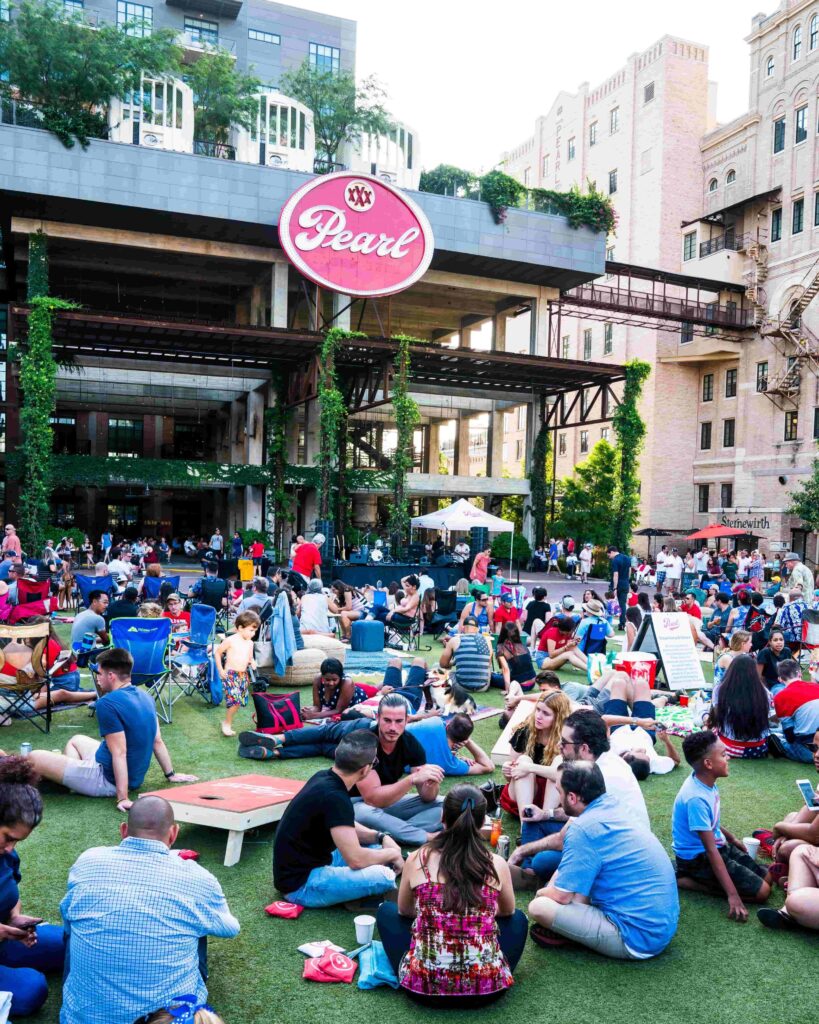It’s the first week of 2021… a good time to think big picture, and maybe even be high-minded. If you recognize me for my longtime involvement with the nonprofit Project for Public Spaces, you won’t be surprised to learn that my new consulting practice focuses on placemaking and public spaces. But in addition, I want to make placemaking more accessible to public-private development partners, in recognition of the fact that real estate development affects our built environment as profoundly and rapidly as any other factor. And I believe the real estate sector is ready to embrace placemaking at a level that will go beyond what we’ve seen so far.
Reflecting on twenty-five years of working with placemaking and urban development, I have to say this moment seems more crystalized than almost any in my experience. The combination of global politics, inequality, climate change, and social movements, which have been gathering strength for years, has been fueled by COVID-19 as an accelerant.
Core Placemaking Principals
To me, the following are some of the core values that have risen to the top, and that will influence urban development for years to come:
- Connectedness and belonging. Isolation has been growing as a social condition for many years, highlighted especially well by Eric Klinenberg’s work on social infrastructure. In 2021, as people emerge from their COVID-induced confinement, they will cherish more than ever the places where they can gather. Consciously or subconsciously, people will make life-changing decisions based on their need to belong.
- Building the public’s trust. In the wake of fractious political games that have undermined trust, the success of future urban projects will depend on a more honest and open relationship with their local communities. In the past decade, responsible urban development projects have taken community engagement more and more seriously, but as we wake from the nightmare of 2020 building public trust must become a central value.
- Creativity. In so many ways we need to rethink, renew, and reinvent. The glut of empty office and retail space is a call to action for creative approaches that are more flexible and open to new ideas. The fact that public space became a central protagonist in handling the coronavirus raises new possibilities for how we allocate space in our cities. This is in fact an exciting time to bring planners, designers, developers, and community members together and find common causes and support local actors.
- Impact investing. ESG investing will surge, as people realize that development projects are more resilient when they factor in climate, community, and equity issues. Colin Throssell of Nuveen Development recently made this point very well: “Impact has never been more important than it is right now for investors ….The pandemic has definitely accelerated a number of socioeconomic trends that were already evident but it’s brought them to the fore and it’s brought them to the fore in real estate in particular.”
- Honesty in Placemaking. As the above trends become clear, so too will the fact that placemaking deserves a deeper dive and commitment. It’s not a slogan, a trick, or a garnish. It’s a genuine process, approach, and expertise that is in short supply and needs to be deepened and disseminated on a much bigger scale.
I look forward to exploring all these themes and more in the coming year!
Placemaking Advisory and Consulting
Postscript: It’s the start of a new year, but also the start of my new blog, new website, and new placemaking consultancy.
I work with clients and their stakeholders to develop a clear picture of the destination and experience they seek to create. I apply placemaking methods to create places that are diverse and integrated, that spark interaction and exchange, and that build civic and social infrastructure, which in turn boosts economic development and the economic resiliency of an area. If you would like to better understand how placemaking can improve your project, please contact me.
Please visit my website at philmyrick.com and be in touch!
Placemaking and development blog RSS


